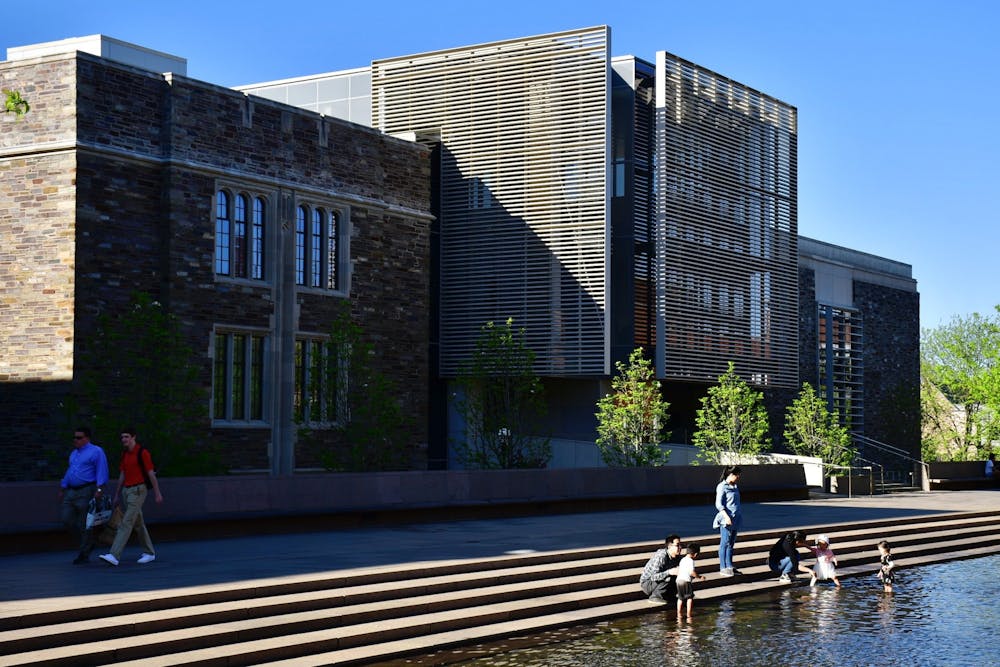On Monday, July 6, Immigration and Customs Enforcement (ICE) issued unnerving new guidelines regarding international student visas: if the student takes an entirely online course load, the student must either “depart the country or transfer to another university that can offer in-person instruction.” This statement is detrimental to our community of international students, who play a big part in making Princeton a unique and diverse university.
The University has planned to invite 50 percent of its student body to live on campus and will conduct most of its teaching online. In addition, the University announcement stated, “In some cases, faculty might be able to teach a smaller course, seminar, or a precept or a lab on-site/in-person for students who are on campus ... We hope to know which courses will be offered in person by late August.” Typically, the student population is one-fifth international. In the Class of 2023 alone, students from 49 countries enrolled for the fall 2019 term, many of whose countries are blocked by the updated Student and Exchange Visitor Program (SEVP). Our international community brings another side of Princeton’s diverse personality, and not letting them continue their education in the United States takes away from both their experience and the experiences of other students who would have gained a different perspective.
ICE’s modifications to SEVP are yet more challenges that students, particularly international students, are facing during the pandemic. At the start of the COVID-19 crisis, many international students were not able to go home. Princeton and other universities were accommodating to this situation; students from a Level 3 COVID-19 outbreak who physically could not return to their country of origin were allowed to remain on campus for the rest of the semester. However, this time on campus was not the same as it was before; fewer than 500 students remained and the days often went by with zero human contact.
President Trump and ICE’s decision to update the SEVP for the 2020–21 school year in this way is appalling and inconsiderate. The push to re-open schools across the country is solely economically motivated, without any regard to safety during a pandemic. Over one million international students attend universities in the United States. In 2018 alone, international students contributed 45 billion dollars to our economy. This contrasts with what many universities have worked on for months, plans that are attempting to comply with all applicable guidelines in order to promote a safe, learning environment. These updates are now putting universities in tough situations again, making them consider more in-person classes to ensure asylum for international students. International students are now forced to choose between their safety and their education.
Princeton is fortunate to have an undergraduate student body of over 600 international students. They bring many different perspectives with them. On campus, we have over 50 student-run clubs celebrating cultural diversity. We have the opportunity to learn about history and religion from five different regions. Students can concentrate their studies in a different country. Princeton is also home to over one thousand international scholars. If they had not been granted their F-1 student visa some years ago, they may not be where they are today. Denying Princeton students their F-1 visa robs them from continuing their education and blocks them from the plentiful opportunities that Princeton has to offer.
While I was in the process of writing this piece, President Eisgruber issued a statement saying that Princeton is “filing an amicus brief in the lawsuit that Harvard and MIT brought against the Department of Homeland Security and ICE earlier today … [and] exploring other legal and policy options, as well as other University actions that might solve the problems created by ICE’s announcement.” International students are an essential part of what makes our University unique, and I am proud that our administration is actively fighting for our international community. The international community brings a global viewpoint and provides a broader perspective to fellow students and faculty alike. SEVP’s modification hurts students’ health and education but it also affects Princeton’s promotion of inclusivity and diversity.
To the international community at Princeton, I am sorry. During the COVID-19 crisis, you either stayed at Princeton alone or went back to your home country and attended class at unreasonable hours. Now you are faced with yet another uncertainty. Even though ICE’s modifications say the government does not want you in the United States, I know that myself and the University want you here to complete your Princeton education. The Princeton community is not the same without you. We will do everything in our power to raise awareness about the injustice created by this policy. We will stand by you. We will “fight vigorously and work relentlessly to support our international students” to ensure that you have a home in the United States for the upcoming school year.
Maisie McPherson is a sophomore from Dana Point, California. She can be reached at maisiem@princeton.edu.








